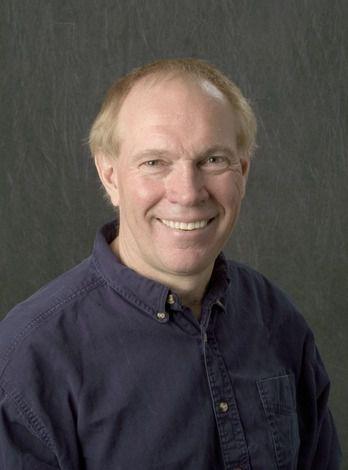In Conversation with Rich Tyler, PhD
 Canadian Audiologist (CA): What got you interested in audiology?
Canadian Audiologist (CA): What got you interested in audiology?
Rich Tyler (RT): I was a stutter and was first interested in speech pathology. As my stuttering subsided with W. Johnson-style treatment, I became more interested in the science of hearing.
CA: I understand you were the first person trained in Ontario to be an audiologist?
RT: Yes, I was first in the University of Western Ontario’s program when they began offering a Master’s degree in Audiology. Jim Stouffer and John Booth were my professors.
CA: Why did you choose the University of Iowa for you PhD?
RT: My interest in the science of audiology led me to Arnold Small and David Lilly, and I heard Iowa City was a great place to live.
CA: What attracted you to the Medical Research Council in Nottingham?
RT: My parents were from the UK, and as my father has died early, it was a way of connecting. And … I liked Robin Hood.
CA: I understand you also spent 2 months as a Swedish Institute Scholar.
RT: I worked with Gunnar Fant, who developed the first electronic apparatus for producing speech. He should have got the Noble Prize.
CA: And how did you end up back in Iowa?
RT: When I was ready to head back to North America, there was a job in Iowa City. Great Departments, great place to live.
CA: So, what was the Cochlear Implant field like in those days?
RT: Brian McCabe, the head of otolaryngology, hired me to help start the Cochlear Implant Program. I thought my job was to prove that cochlear implants did not work. I actually did some research with tactile aids, to show they could help with lipreading.
CA: And what is your perspective on how the cochlear implant field has evolved?
RT: Cochlear implants have changed the lives of so many people. Hearing is so important.
CA: How did you get interested in tinnitus?
RT: Ross Coles and others in the United Kingdom were doing research on tinnitus when I started there, and I just saw it as a chance to contribute. I recall doing a masking study on a 30-year-old man with tinnitus. He came out of the booth crying. He said it was the first time he was not able to hear his tinnitus in 4 years!
CA: How has the field of tinnitus evolved over the years?
RT: It has always been a problem for me to get clinicians (and our professional organizations) interested in helping tinnitus patients. I am so glad that many are now interested in helping tinnitus patients. Our Tinnitus Activities Treatment pictures are available at no charge: https://medicine.uiowa.edu/oto/research/tinnitus-and-hyperacusis.
CA: I understand you are having your 26th annual tinnitus and hyperacusis conference on June 14-15, 2018.
RT: Yes, we attract clinicians (and patients) from around the world. Manufacturers present their latest products. We review Tinnitus Activities Treatment. And we have a few researchers keeping the clinicians up to date. 26 years!
https://www.medicine.uiowa.edu/oto/education/conferences-and-events/management-tinnitus-and-hyperacusis-patient-course
CA: Can you comment on the large number of Internet sites for publishing articles?
RT: There used to be 4 journals for audiology articles; now there are 400 (and 40 more next month). I cannot keep up with the 100 publications on tinnitus each month. And there are more people doing reviews of research than there are doing research.
CA: Any comments on the future?
RT: Well, the volumes of publications are a problem, and I don’t see a resolve. But, I am very glad that clinicians are getting more focused on helping tinnitus patients. And, people are starting to appreciate (still a long way to go), how important hearing is. It is not just about hearing, it is about interacting with people, sharing, and planning for the future. I have a Meaning of Life paper coming out soon.

